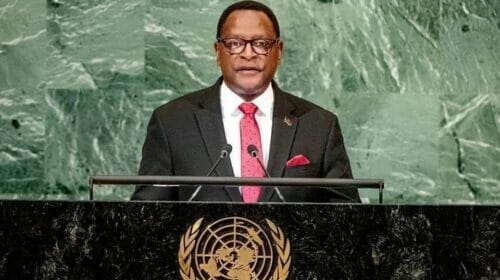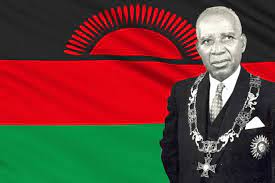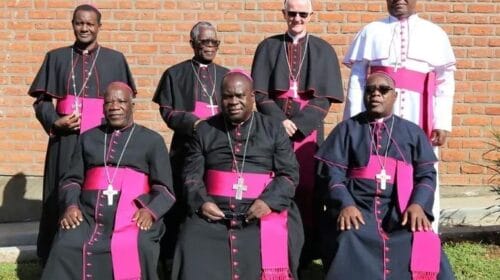The importance of President Chakwera attending UNGA Summits
By Janet Karim
Not forsaking the assembling of ourselves together, as the manner of some is; but exhorting one another: and so much the more, as ye see the day approaching. — Hebrew 10:25
United Nations media reports that world leaders will gather in New York for the opening of the 78th session of the General Assembly (UNGA 78) under the theme, “Rebuilding trust and reigniting global solidarity: Accelerating action on the 2030 Agenda and its Sustainable Development Goals towards peace, prosperity, progress and the sustainability for all.” It adds that the first day of the high-level General Debate will be 19 September 2023. Rightly so, and with much support and encouragement from deeply-rooted internationalists, Malawi President, Lazarus Chakwera, joins his colleagues from most of the 194-member leaders of the UN. He has to go. He must go to attend as many meetings as he can. He will be representing 22 million Malawians.
Many respondents on social media, this week disagreed the need for President Chakwera to head for the annual leaders’ meeting; they cite that it is a waste of time, money, and that such money used on these trips (along with large entourage), could be put to better use like buying medicines, fixing broken bridges, building school blocks, etc.
To this group of Malawian respondents and others of the same thought, there are two things they should consider. These are:
- Not attending UNGA summit is like paying taxes and then not taking part in voting for who should represent you in parliament (in other words: paying taxes without representation); and
- You will always have these issues, almost every country has its share of social issues. Beside this, by simply not attending the UNGA, will not lead to automatic end of the issues cited above.
Much of the arguments voting in favor of the president not going to the summit, stems from the lack of understanding of what the UN is, how it works, and the benefits of membership to this global 194-member organization. The United Nation, which this year clocks 78 years, has all the appearances of being about privileged people attending pointless meetings, drinking and dining, and having a lot of fun; all at the expense of the millions of poor people around the world, including 22 million Malawians.
Having worked for and with the United Nations for ten years (two in Malawi and eight in NY), I can say “Yes, the UN is about attending meetings, it is also about attending parties (sometimes two or three in one day or one night)!” Additionally, it is without doubt that New York City shops, hotels, and business outlets like transportation and restaurants, make money out of the delegations from the 194 countries (including out-of-state Americans) for four weeks they are in New York City. Why all the fuss, why all the to-do, and why all this money spent for a two-week meeting fest of world leaders?
The United Nations is a global organization created in 1945 as the institution that would safeguard world peace, ensure equitable spread of development, and mitigate the effects of disasters. Through the 78 years of its existence, the world body has enacted laws (known as Resolutions and Protocols that govern its members. It is run by six main branches: the General Assembly, the Security Council, The Economic and Social Council, the Trusteeship Council, the International Court of Justice and the Secretariat. The UN has implementing agencies that work in countries that ask for them such as the UNDP, International Labor Organization, the WHO, UNESCO UNICEF UNAIDS, UNFPA, UNHCR, WFP, WORLD BANK, IMF, IFAD, UNEP, UNIDO, WIPO, IMO, ICAO, and others.
In close to its 60-year membership at the UN, Malawi as a paying member, has participated in shaping many of the Resolutions and Protocols coming out of the United Nations. It has also localized most if not all of them, as much as it can manage. One recent localization of a UN Resolution was the 2015 law that outlawed child marriage in Malawi. Malawi playing a role in shaping the Resolutions and Protocols that come out of the UN becomes important in that as a country, enjoying equal rights of “one country, one vote” accords the country the right to either include or remove elements the country wants or needs, or those that the country is against.
This is something that the citizens benefit from; the country localizing the no to child marriage or the resolution calling for the immunization of all children under the age of five years of age, UN Women offices in Malawi, school-feeding program, and many more. The 22 million Malawians have and continue to benefit from these UN-generated elements of the global citizens. The annual Summit known as the United Nations General Assembly (UNGA) is the meeting of Heads of State and Government. During this time, leaders deliver their country statement which gives an indication of where their respective countries are in relation to the theme.
As President Chakwera heads for New York in the coming week, it is expected he will speak to Malawi’s efforts towards Rebuilding trust and reigniting global solidarity: Accelerating action on the 2030 Agenda and its Sustainable Development Goals towards peace, prosperity, progress and the sustainability for all. He is also likely to talk about how the country is confronting the global polycrisis and the strategies Malawi is using to achieve the SDGs. He is also likely to include the challenges Malawi is faced with, especially with the impact of Hurricane Freddie. The Malawi Statement aims to inspire and ignite countries and philanthropists to look at Malawi with a focused lens from the eyes of its leader. As with previous summits, indeed as his predecessors before him have done, he is likely to meet with UN agency leaders and also leaders from other countries seeking to work with Malawi.
The UN General Assembly (UNGA) is the main policy-making organ of the United Nation, and it is attended by almost every leader from the 194 members for 15 minutes. The UNGA provides all Member States a unique forum for multilateral discussion of the full spectrum of international issues covered by the Charter of the United Nations. As a member of regional bodies, the Malawi leader will also meet with members of the African Group, SADC, and the Commonwealth. It is well known that the African leaders meeting will be quite boisterous, lively, energetic, and active.
On the fringes of these group meetings, there could be the opportunity for leaders from the ACP-EU group to meet to iron out the messy tangle of the deceptive ACP/EU post-Cotonou Agreement that has some treaty components that are unacceptable. African, Caribbean, and Asia Pacific nations must continue to say no to the unacceptable elements in the Agreement with its nasty treaty provisions.
Malawi is and must play its part in the UNGA. Twenty-two million Malawians are depending on this!




